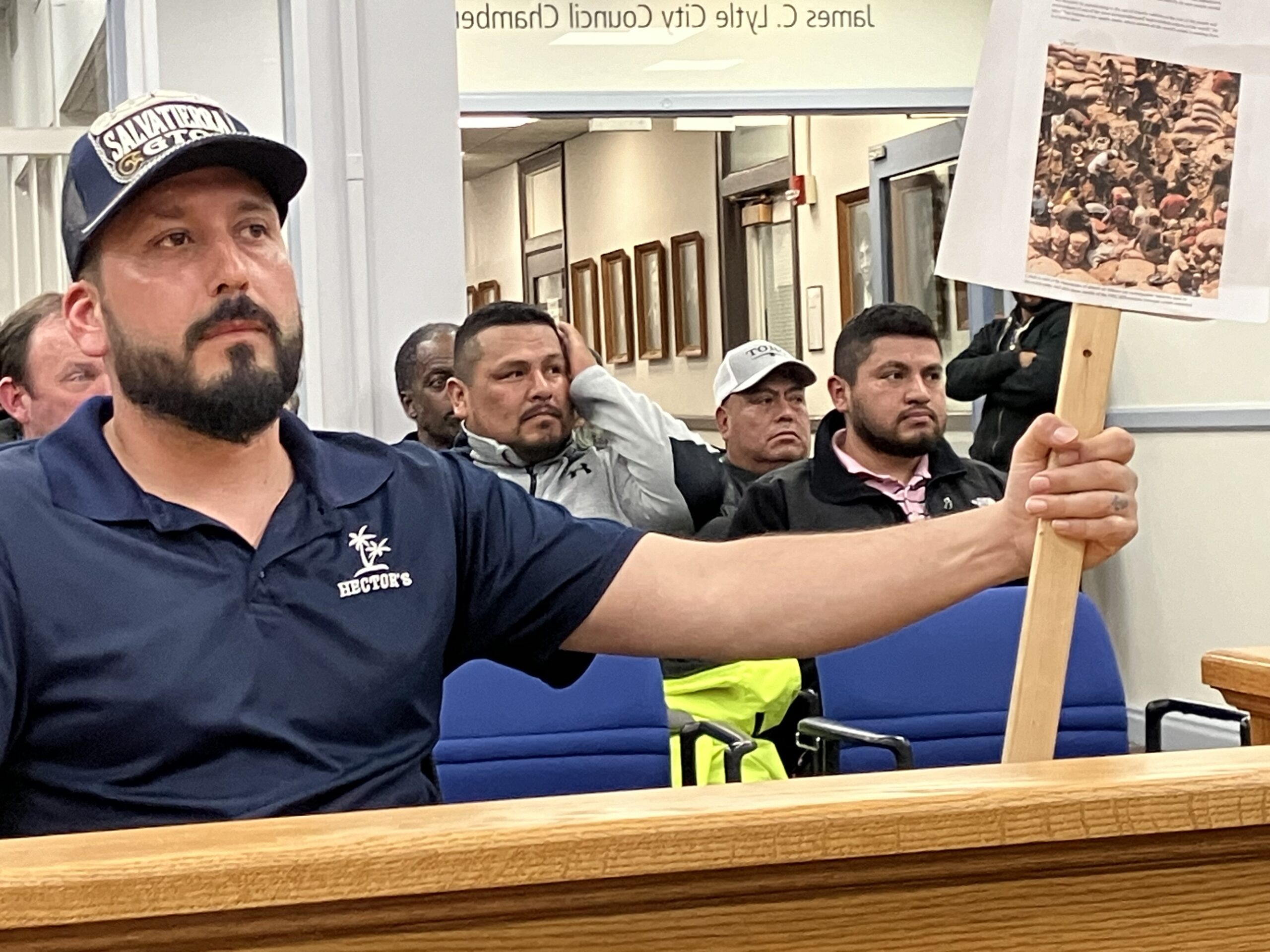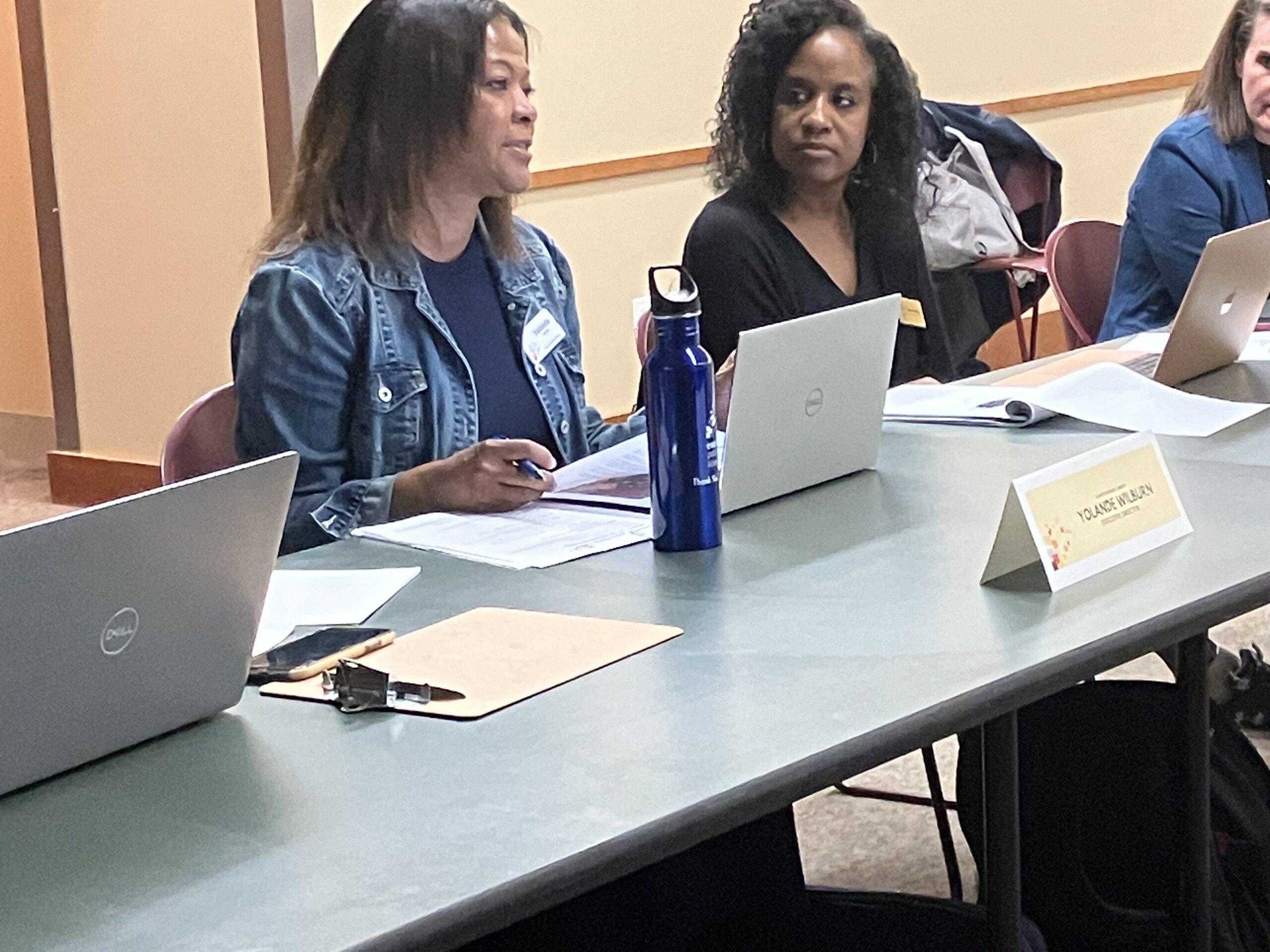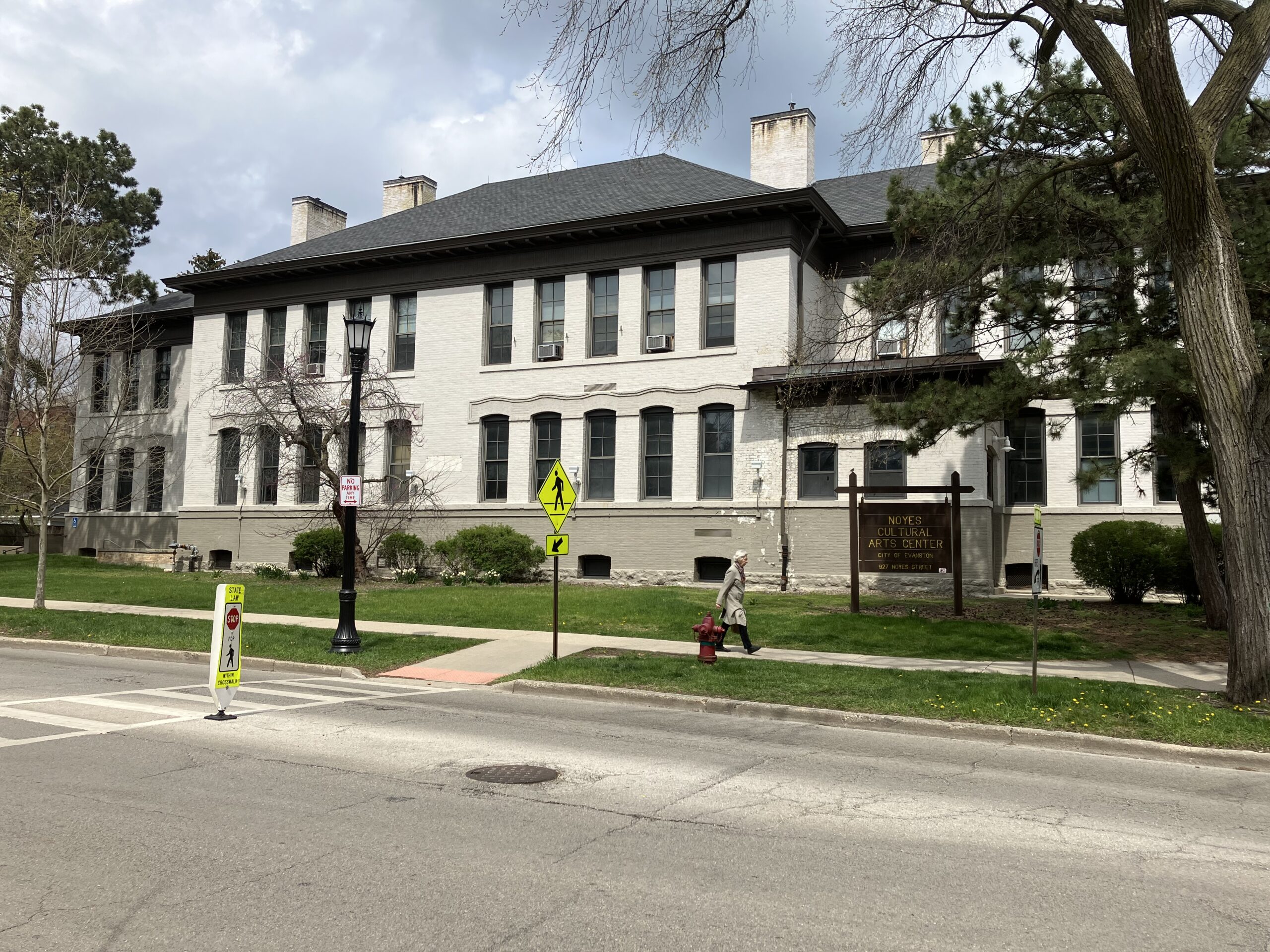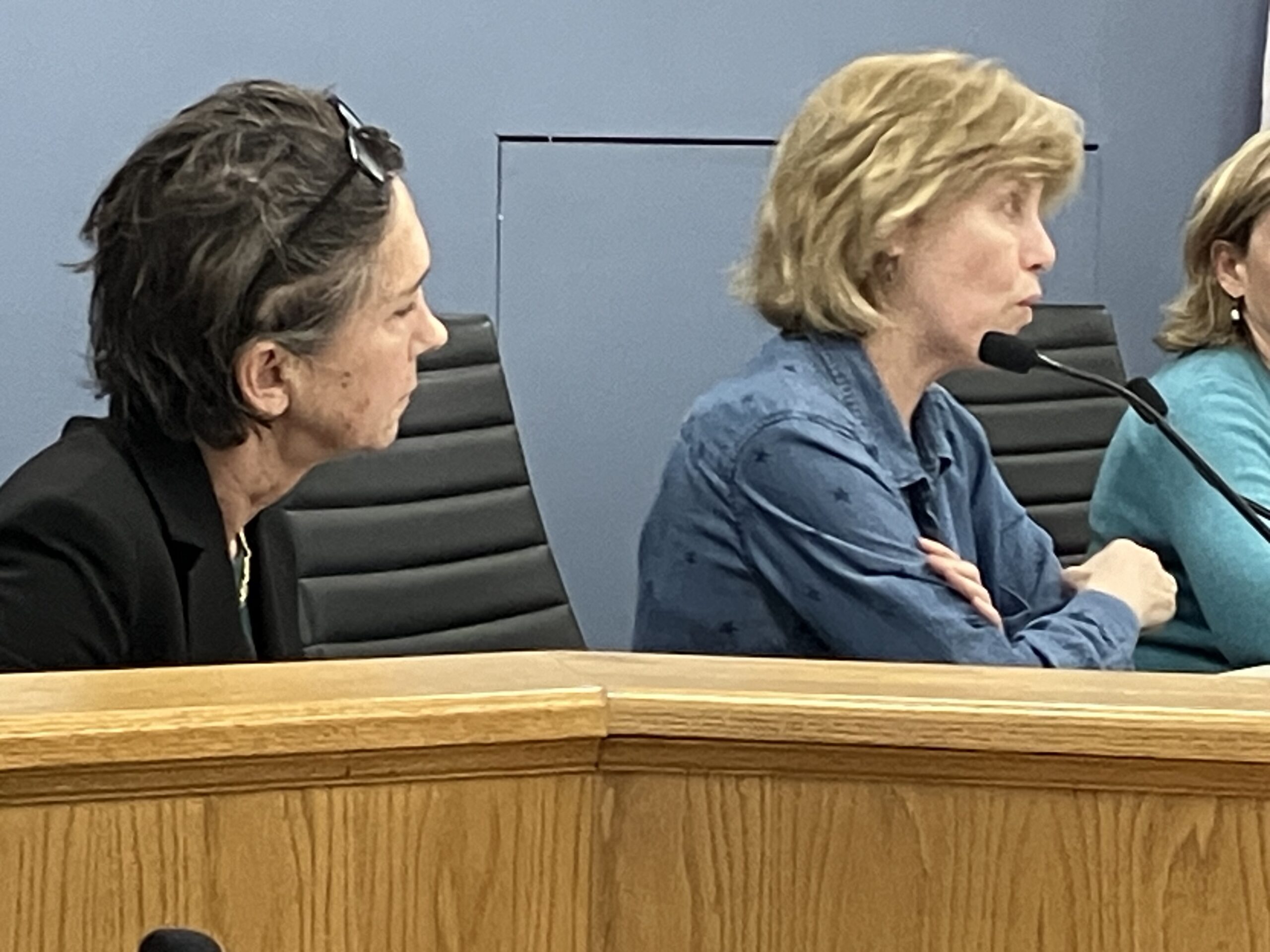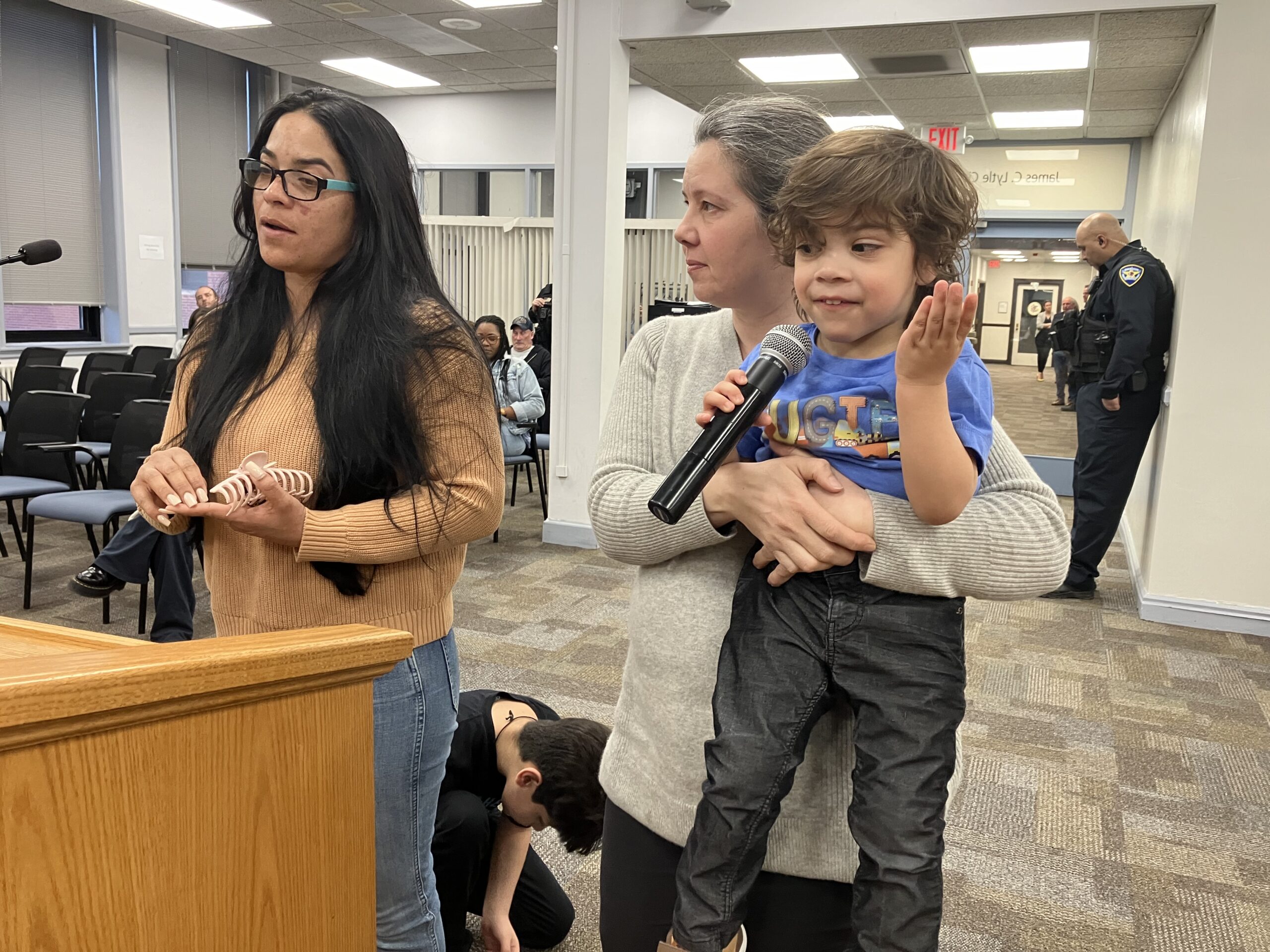By Bob Seidenberg
City Council committee voted Monday to direct staff to draw up a resolution that would temporarily lift the city’s ban on gas-powered leaf blowers this spring, allowing officials time to find funding sources for smaller landscaping companies experiencing difficulty making the switch to electric.
Members of the city’s Human Services Committee voted 4-1 for such a resolution, which they would consider at their next meeting, scheduled for March 4. The proposal could then be moved to the City Council for approval as soon as March 12.
The committee’s action came after local landscapers packed council chambers Monday night, calling for a relief period.
The ban, which went into effect last April, “is affecting a lot of Hispanic and Latino families – not only just us, but the landscape community around Evanston,” said landscaper Hector Hernandez, before taking the lectern to address Human Services Committee members. “The jobs that have begun in Evanston are now getting stepped on and are basically moved aside, allowing the big companies to come in and charge vast dollars that the normal household won’t even pay us.”
Council members made the move away from gas- or propane-powered leaf blowers in a November 2021 ordinance that took effect last year, allowing only electric leaf-blowers. Before April 1, 2023, gas or propane powered leaf blowers could be used, but only from March 30 to May 15 and from Oct. 15 to the first Thursday in December. There are no seasonal restrictions, however, in the use of electric leaf blowers.
Leading up to the move, a number of environmental groups pushed for banning gas-powered leaf blowers, raising concerns ranging from high noise levels to their effect on the environment and native habitats.
Currently one city staff person is deployed to respond to leaf-blower issues. That role includes investigating complaints and patrolling to monitor compliance, wrote Ike Ogbo, director of the city’s Health & Human Services Department, in a memo to the committee.
Since the ban has gone into effect, the number of tickets issued for violations has risen from 17 in the 2015-2021 period to 80 issued in 2023 alone.
The ordinance’s fine structure ranges from a $0 warning for a first violation up to a maximum of $250 for a fifth offense and any subsequent violations, Ogbo said.
City grant doesn’t cover cost of switch
As part of the ordinance last year, council members approved an entrepreneurship grant of $3,000 per company to help landscapers make the switch to electric to comply with the ordinance.
At the meeting, though, landscapers, a number of them based in Skokie, said the amount is insufficient, with up to five batteries needed to complete one job.
In addition, “We’ve taken harassment,” speaker Joseph St. Clair, with Green Concepts of Skokie, told committee members. “I had one of my guys tackled on Central Street by a member of the … condo association. He [the worker] was running a steel electric blower at the time, but the homeowner assumed otherwise.
“Did the police do anything? No, it took them an hour and a half to show up. We’ve taken harassment, including myself and one of my guys, and they have encountered harassment from community members who spot them using gas-powered blowers.”
When Alvaro Gomez, another speaker, got his first tickets, “he didn’t even know the people that came to ticket,” said Hernandez, translating Gomez’s Spanish remarks.
“They started coming up and taking photos of him and his company, and out of nowhere in the mail he started receiving his tickets. He’s got people here that owe at least $1,200 on the tickets, and they still don’t know where these tickets come from.”
Landscapers say bigger businesses swoop in
Ramon Padilla, another speaker who has his own landscaping service, told committee members that he, as well as “my friends, peers, relatives, we all provide a service that’s much needed, similar to … [sanitation workers] and everything else.”
“I don’t understand why we’re being discriminated [against], why we’re being … strong-armed,” Padilla said. “You know, we’re being attacked by … entitled residents, who feel like they have the right to tell us what we can and can’t do, when we’re trying to do our job, so we can take care of our family, like everybody else.”
The required electric leaf blowers “are inadequate,” he told committee members. “They can’t just do the type of jobs that we need to do.” Electric leaf blowers aren’t as strong and take longer to use, so they raise labor expenses, Padilla said.
Because of that, he said, “I find it really hard for us to be able to render any type of service for any type of reasonable fees. You guys [officials] are just allowing the much bigger businesses to be able to come in and charge a much larger fee than what we can do, and since the residents have no other choice where they go – they just go with them, but they feel compelled to just haggle with us.”
Another speaker, Peter Catalano, the manager of a landscaping firm and also a dealer for the equipment that is used, told committee members that Evanston ranks at the top of the list for heavy leaf fall.
He said, ”In my opinion, the equipment simply isn’t there yet,” for the job. “I’m in favor of going green wherever we can. However, the output of an electric blower is nowhere near that of a gasoline blower. The cost of a commercial piece of equipment is around $2,400. And that doesn’t even get these guys through their day,” with batteries powering perhaps just 2 hours of use, he estimated.
“The residents need to understand that the work is going to take significantly longer because they are not powered to do their job,” Catalano said.
In his earlier remarks, Hernandez alsoreferred to the lithium batteries used to power the electric leaf blowers as another concern.
“Lithium is known to pollute our waters,” he said, “so, no, my friends, Evanston is not the cleanest, nor do I feel to be the safest, environment to work nowadays.”
Staff seeks landscapers’ feedback
Department staff has been aware of the concerns and encourages Evanston landscapers to apply for the $3,000 entrepreneurship grants to assist them with purchase of electric leaf blowers, Ogbo said in his memo.
He also said that staff has arranged meetings to solicit feedback from landscapers regarding their concerns and how to improve the program. Reminders about the ordinance have been sent out via email lists, press releases and e-newsletters, he said, including pamphlets and postcards in English and Spanish.
Greg Olsen, the city’s public health manager, told committee members that the city also has a website with information about the issue, as well as a list of registered contractors.
He said the city relies on submitted information to check out possible violations, requiring photographs or videos.
“If we receive a request that does not have any evidence, we simply inform the complainant that no enforcement can take place without an Evanston official observing the violation or having received any sort of evidence,” he said.
A first violation triggers only an official notice. A second valid complaint results in a summons to appear at a city administrative adjudication session.
Olsen said one of the challenges the city faces with the new ordinance is that some landscapers are unable to be identified in the field. Also, currently, there’s no enforcement for landscapers if they are not registered with the city, he said.
Geracaris: ‘Hard changes’ to aid climate
In discussion, committee members supported a motion from Council Member Juan Geracaris (9th Ward), that would meet landscapers’ request that gas leaf blowers be allowed for a period of time during the spring and fall.
Geracaris, who is fluent in Spanish, had met with some of the landscapers several weeks ago. Right now, he said, the electric equipment is not as good as gas-powered blowers and that is something that really affects local landscapers’ business.
“I would personally like us to open up and increase our grants, but also give the guys a little bit of leeway,” Geracaris said.
Based on his conversations with the landscapers, he said, the consensus was for three weeks in the spring and three weeks in fall allowing gas-powered blowers, “as we’re making these hard changes to accommodate for climate action.'”
“We have to move away from natural gas, we have to move towards electrification of our homes,” he said, referring to another climate action move. “That doesn’t just happen overnight.”
“This is some of the growing pains that we have being one of the first communities to do this,” he said, to audience applause.
Committee members backed a three-week enforcement break this March.
Council Member Krissie Harris (2nd Ward) expressed concern about the city’s process of handling complaints by requiring photos.
“We’re dealing with a vulnerable population which doesn’t understand or know why you take my photo,” Harris said. “It has many more implications.”
She suggested the city may have to reexamine its approach, as it did with its plastic bag ban. “We’re saying batteries and $3,000 [to cover it], and that’s a problem.”
“So we really need to look at this thinking,” she said, also receiving applause.
Council Member Bobby Burns (5th Ward), said he was troubled what landscapers had said about harassment from residents.
“Anytime we’ve heard something where there’s unintended consequences or … that leads to disputes between neighbors, that’s never what we want in the city,” Burns emphasized.
“It really is an effort to try to implement our climate action and resiliency plan as best we can,” he said. “There was a lot of time and effort that went into developing that plan. And as committee members on this committee. … We’re trying our best to implement it, being as fair as we can, and also trying to foresee as many unintended consequences as we can.”
He asked staff to clarify the policy regarding using photos or video as evidence.
Olsen explained, “We’ve gotten plenty of requests, or 311 requests, that’ll be a picture of just a leaf blower sitting on the ground. And they’ll say such and such was using this at this house at this time, but there’s no evidence of a violation taking place. It’s just a leaf blower, so those get thrown out.”
The city staff member assigned to investigate complaints is “very particular in reviewing every single picture that comes in and video that comes in to make sure that it is indisputable. And one of the things that we discussed at our meeting [ with landscapers] was if anyone has received any sort of notice of violation or administrative adjudication or anything like that, they’re entitled to see the evidence.”
Revelle: Moving backward ‘a mistake’
Chairing the meeting, Council Member Devon Reid (8th Ward), said he thought the speakers had raised some important points, including those about lithium batteries.
“It does mean that the air here is cleaner, but it means that somewhere in Africa there are children that are having to mine cobalt and lithium and all of these precious metals that are used to make the battery,” Reid said.
“It means that when these batteries are disposed [improperly] … that means that the lithium is leaking into our water streams and causing harm.”
On the landscapers’ cost concerns, he said, “I do think there has to be a middle ground. … Not only to meet higher standards, but also [for electric blowers] to come down in price, so they’re more affordable and they don’t price folks out.”
Council Member Eleanor Revelle (7th Ward), the lone committee member to vote against sending the ordinance back to allow a three-week period for gas blowers, said “somehow we have to be able to help everyone move forward on this ordinance.”
The real key, she said, “is coming up with some significant funding” for a more generous grant program.
“We’ve got money now from Northwestern or in our Climate Action Fund, right,” she said. “So maybe that’s where we could find some money, because I think that’s better rather than backtracking and saying, well for three months in the spring in the fall, we gas leaf blowers. I think that would be a mistake. It’d be better to continue to focus on helping everyone move forward.”
